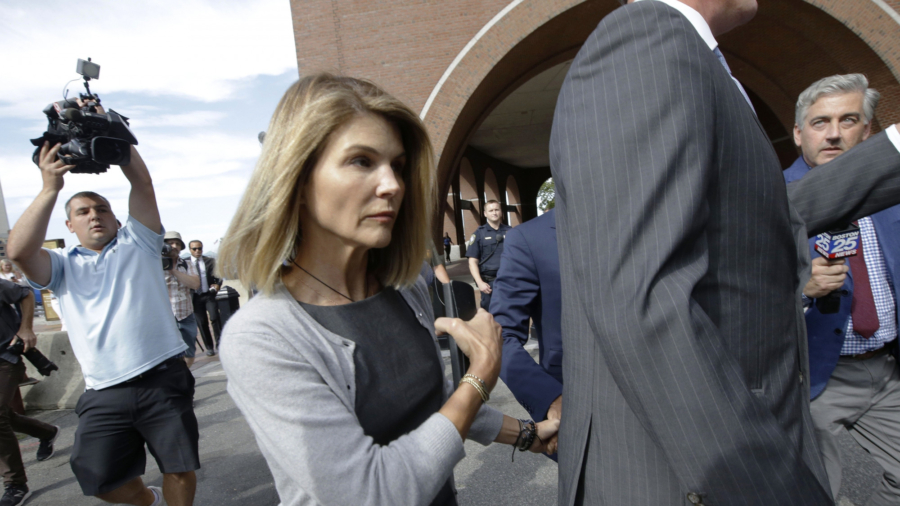BOSTON—Federal prosecutors on April 24 denied that law enforcement engaged in misconduct, fabricated evidence, or tried to entrap “Full House” actress Lori Loughlin or other wealthy parents who are now awaiting trial in the U.S. college admissions scandal.
Prosecutors in a filing sought to counter what a federal judge in Boston last week said were “serious and disturbing” allegations that investigators pushed their cooperating witness to lie and trick parents into making incriminating statements.
That cooperator was William “Rick” Singer, a college admissions consultant who has admitted to orchestrating a vast scheme to use bribery and other forms of fraud to help wealthy parents secure the admission of their children to top schools.
Prosecutors acknowledged that investigators directed Singer during recorded calls with the parents to “use ruses,” but said his calls with them were consistent with evidence they had gathered and did not amount to government misconduct.
“The government did not use Singer to suborn the commission of a crime,” prosecutors wrote.
Loughlin’s lawyers did not respond to requests for comment.
To date, 53 people have been charged over a scheme prosecutors say Singer ran to facilitate cheating on college entrance exams and use bribery to secure the admission of various parents’ children to schools as fake athletic recruits.
Prosecutors allege Loughlin and her fashion designer husband, Mossimo Giannulli, agreed with Singer to pay $500,000 in bribes to have their two daughters named as recruits to the University of Southern California crew team.
Last month, defense lawyers sought the dismissal of the case, saying Singer’s personal notes demonstrate the calls he placed to parents were an orchestrated sham by investigators to entrap them.
In notes written in October 2018, Singer said FBI agents told him to “tell a fib” during the calls by saying the money they were paying would be used for university donations rather than bribes.
Prosecutors on Friday said Singer’s notes referred to calls he made during a sting portion of the probe to parents about future or current payments and not to the defendants awaiting trial, who they said were past participants in the scheme.
Prosecutors said Singer at that time resisted using “blunt language” to refer to the money as bribes.
Singer told the FBI on Wednesday that while he “always knew he was doing a quid pro quo,” he did not until later realize that was the same thing as bribery, according to interview notes.
By Nate Raymond


